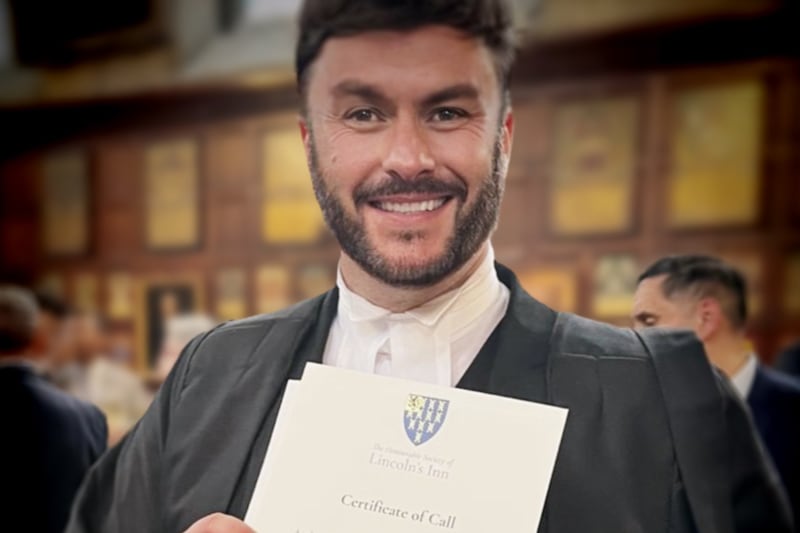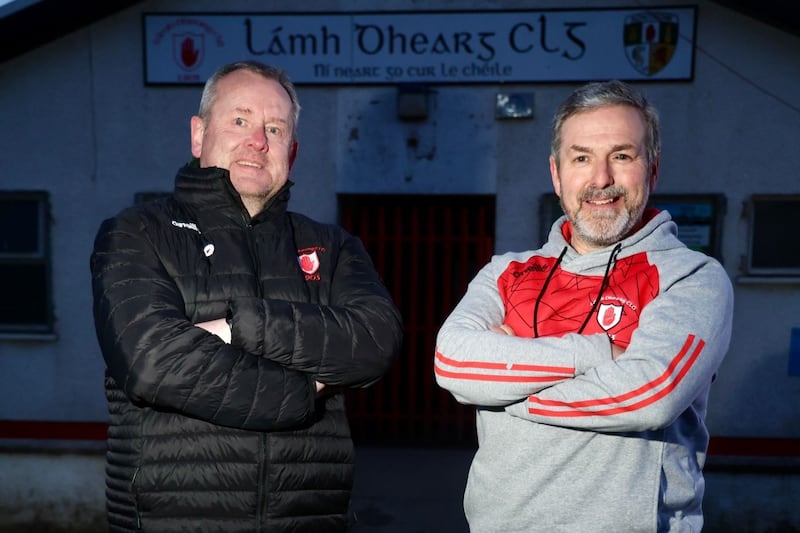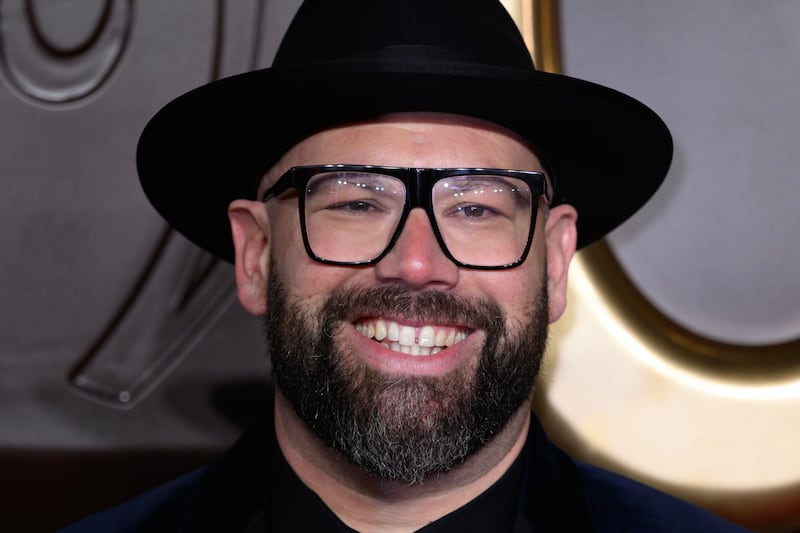Ciaran Crawford passed away on 25 September 2021, a week after he decided to take his own life. Ciaran’s death was a shock, but then, it always is.
In that same year, 236 other people died by suicide in Northern Ireland - 176 of these were men. Every one had their own story, their own difficulties, their own life.
They all woke up in the morning, they all ate breakfast, they all laughed, and they all cried. They also all suffered, and for one reason or another, at some stage in their lives, their suffering became too much and suffocated them to the point where it was no longer bearable.
In a post-conflict society, after a debilitating pandemic, and where mental health services are wholly inadequate, stats like these are considered the norm. Every year, the number of annual suicides in Northern Ireland is announced, on BBC Newsline or UTV Live.
Viewers stop for a second, turning their heads toward the TV, before returning to their evening meals. Those who have suffered the loss of someone to suicide might pause for slightly longer, thinking of that person, before also turning back to their dinner.
If there’s not much other news, they might gift a 30 second interview to a mental health charity or speak to a suicide survivor.
Young men consistently take up a large proportion of these statistics, for a variety of reasons. They have been found to be less likely to recognise a mental health problem compared to women, less likely to talk to a family member about their emotions, and much less likely to report a personal vulnerability to depression.
It is possible Ciaran was found victim of all three of these charges.

‘Crawf’ was one of my best mates. He lived on the next street and we would travel to and from school together for seven years, first on the bus, and then I would drive. Ciaran, myself, and two other friends, would discuss the world over for the whole 30 minute journey.
The discussions would often develop into arguments, leaving all four of us walking into school with smoke coming out of our ears. We knew each other better than some members of our own families.
In school, Ciaran performed well. He seemed to find the work effortless, and therefore gave it that, never over-exhausting himself with any work he deemed unnecessary, but continuously achieving good grades. Studying Chemistry and Physics especially came naturally to him.
He also possessed an innate and rare ability to misbehave while never getting disapproval from teachers. They would hand him a detention, while smirking at his impishness. I never met a teacher that didn’t like him.
He would go on to study chemical engineering in Manchester but things didn’t work out and he would return home. Somewhere along this path Crawf began to suffer from depression and eventually it would become too much for him.
I was in Dublin airport, leaving for my Erasmus year, when I got a text from a friend: ‘Are you for Prague today?’
I confirmed I was but received no further text. My friends waited a few days before telling me about Ciaran, it’s something I will always be grateful for as I would never have got on the plane.
They eventually informed me that Ciaran had attempted to take his life and was now on life support in hospital. It was the worst week of my life.
I was in a city I did not know, with nobody I could talk to, waiting to see if my friend would live or die, 1,000 miles away. I travelled with the local Prague GAA team to Vienna that weekend, in some ways seeking home comforts and in others to try to distract myself.
I got a text at half-time of the final saying that Ciaran had passed away. I went to the changing rooms, locked the cubicle door, and cried.
No matter how many times it happens and no matter the circumstances, young men should not have to experience sitting in front of their friend’s casket. It doesn’t make sense. At Ciaran’s wake, as a group formed outside the funeral home, we each, in turn, and in silence, hugged every person that joined.
It was cold and mechanical but we did not know what to do. Nobody knew how twenty-something year olds were supposed to grieve.
Mental health during the holiday season!💚
— PIPS Suicide Prevention Charity (@PipsCharity) December 22, 2023
Planting The Seeds Of Hope
PIPS BELFAST 028 9080 5850
PIPS DERRY 028 7122 4133
PIPS ENNISKILLEN 028 6633 9004#mentalhealthawareness #mentalhealthmatters #mentalhealthsupport #selflove #mentalwellness #breakthestigma pic.twitter.com/aTa4kZvmWa
Ciaran’s funeral was the first time that I had come to the realisation that Ciaran was gone. As the priest uttered his name - ‘Ciaran was...’ ‘Ciaran had...’ - I realised that it was Crawf he was referring to and that he was not coming back.
Before this I half-felt like he was going to walk in late to come over and join us. A few smiled when Ciaran was named as a child of God, we knew he’d be laughing too. After the service, outside the church, the murmuring died down as Ciaran was taken away in the hearse.
Nearly a hundred young men, dressed in black, turned their broad shoulders towards the departing hearse, and stood in silence as it moved slowly away.
Ciaran is buried in Glenravel, north Co Antrim, close to where his grandparents live. It is one of the most picturesque settings on this island. A river runs through the graveyard, underneath an old tower, surrounded by miles and miles of green.

Nobody chooses where they are to be buried at the age of 20, but if you got to choose, it might be there. We visited Ciaran’s grave for the first time shortly after his funeral. It was covered in flowers and had a prayer card from St Jude.
One of the lads picked it up and discovered through a quick Google search that, St Jude was the patron saint for lost causes. He carefully placed the prayer card back, saying, ‘You weren’t a lost cause Crawf.’
Crawf was an epic sportsman, there’s no other adjective to use. He was an all-Ireland Judo champion, and in hurling, he captained underage teams at Rossa GAC. He even developed into our school’s best rugby player, despite having never played the sport. Crawf was also a handy footballer.
Based on Ciaran’s love for sport, every December 31 since his passing we have held a major football tournament in his honour. We gather 120 of those who knew and loved him, and bring them together to compete for a trophy in Ciaran’s name. We have raised almost £25,000 for mental health charities in Northern Ireland and this year plan to raise even more.

The date, the last day of the year, is also significant, it allows Ciaran’s mum and dad, as well as his friends and family to come together when they come home for Christmas.
It is also Ciaran’s birthday. The event allows those who knew Crawf to talk about him, it keeps his memory alive. It also allows his friends to talk about their own struggles, how they’re coping and feeling, providing a safe space to do so.
Conversation, community, and connections are vitally important in our human existence, especially at this time of year.
For further information on this year’s fundraiser, visit https://www.justgiving.com/page/ciarancrawfordcup2023







